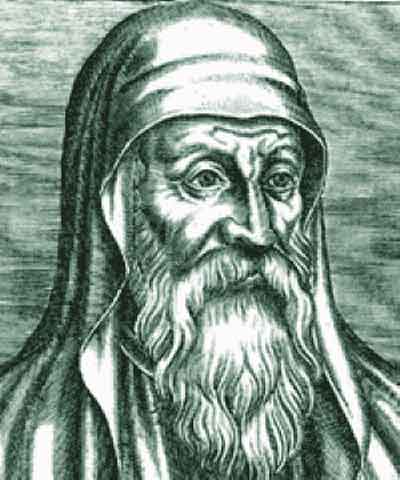The second and third centuries had to be a delicate time for the early church. True, amazing things were happening. The church was growing at a mind-blowing pace, and on a global scale, but these early days were fraught with dangers from every side. They faced regular opposition from theological impostors, devastating plagues, and on-again-off-again persecution. Dig into the history and you’ll find yourself wondering how the whole thing didn’t come undone and collapse in a twisted pile.
But it didn’t collapse. It continued to grow in depth, in numbers and in strength.
It was a delicate time, but the early church was strengthened by Spirit led women and men who faced the unthinkable with wisdom and the unbearable with a cruciform shaped courage.
One of these early faith heroes was a man named Origen of Alexandria who lived somewhere between 185 – 253 AD. So successful was his resistance to the forces against him and the church, he was nick-named “Adamantius” which means man of steel.
Origen grew up in a Christian home where he learned the Bible from his father, Leonidas. At the age of 17 his father was beheaded for his faith at the hands of hostile Roman officials during the reign of Septimius Severus. Grief-stricken, he wanted to join his father as a martyr, but his mother prevented him from leaving the house by hiding all his clothes. Dying in public is one thing, but no self-respecting teen wants to be caught in public sans clothing.
He was trained as a chatechist (a teacher of new believers) in Alexandria, but quickly grew beyond his teachers. Sometime around 231 he was ordained as a presbyter and voraciously continued his studies eventually becoming the premier theologian and apologist of his day.
A confirmed ascetic, he was fanatically committed to self-discipline and an austere lifestyle that shunned anything hinting of moral weakness. He slept on the floor, ate no meat, drank no wine, fasted twice a week, and didn’t own shoes. It appears he even made himself a eunuch (yes, made himself a eunuch) to avoid even the hint of scandal since he was a teacher of women as well as men.
He founded the Christian School of Caesarea, he wrote some 2,000 treatises for the early church including De Principiis (On First Principles), the first systematic exposition of Christian theology ever written. He produced the first critical edition of the Hebrew Bible, which contained the original Hebrew text as well as five different Greek translations, all written in columns, side-by-side. He also wrote hundreds of homilies covering almost the entire Bible.
Origen’s zeal and prodigious writing wasn’t all good. His works were often criticized, and he faced strong opposition from within the church. His outlandish beliefs about the pre-existence of all souls, his reliance on the allegorical interpretation of scripture and his views on the Trinity caused theological issues the church would wrestle against for centuries. He has even had the title of heretic handed to him then taken away a time or two.
Alongside this furious output Origen also ministered to the needs of struggling believers. During the on-again-off-again persecution of Christians during his era, Origen boldly visited the imprisoned, attended their trials, while comforting the condemned. Work which led him to develop one of the finest defenses of Christianity produced in the early church.
In his Against Celsus, he answered the charge that Christians, by refusing military service, failed the test of good citizenship. He wrote, “We who by our prayers destroy all demons which stir up wars, violate oaths, and disturb the peace are of more help to the emperors than those who seem to be doing the fighting.”
Fine as his defense was, the authorities weren’t convinced and in AD 250 the Emperor Decius had Origen imprisoned and tortured. He was kept alive to give him the opportunity to renounce his faith, but he outlasted Decius who died first. Origen was set free, but never regained his health and died a few years later in 253 AD. A true man of steel.









 RSS Feed
RSS Feed